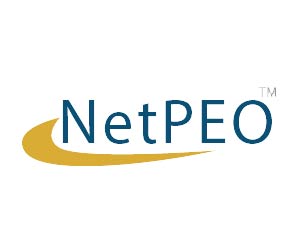When searching for a Professional Employer Organization (PEO), certified peo cpeo status is one of the most important factors to consider. A certified peo cpeo demonstrates that it meets strict standards for financial stability, financial responsibility, and ethical business practices. Choosing a certified peo cpeo ensures that your business will receive reliable HR, payroll, and compliance support, helping you outsource hr functions efficiently while meeting all compliance requirements. But how exactly can you confirm that a PEO is certified?
One option to help build trust is to turn to a Certified Professional Employer Organization (CPEO). A CPEO is an organization that has met the rigorous standards required by the IRS to earn the designation. The IRS makes it easy to know if a PEO is certified, as their website has public listings available to check.
However, while having a certification from the IRS is a signal that the organization may be trustworthy, it is by no means the only way of indicating a PEO is right for your business. The right PEO will be a good fit for your company culture, offer services that you need, and will have measures in place to protect your business.
If you need help finding a new PEO to trust, NetPEO’s brokers are here for you. When you call (678) 376-1212 for your free initial needs analysis, our brokers will listen to your concerns and will help you find a PEO partner you can rely on to properly handle your company’s most sensitive information.
Understanding PEO Certification
In the United States, the most recognized certification for PEOs is the certified peo cpeo designation issued by the internal revenue service irs. This certification indicates that the PEO has undergone a thorough review of its operations, financial responsibility, and legal compliance. Being a certified peo also means the organization is authorized to assume certain tax responsibilities for its clients, including tax compliance state and federal employment tax, which provides an added layer of protection for business owners.
Checking Official Registries and Accreditation
One of the first steps in verifying a PEO’s certification is checking official sources. The internal revenue service irs maintains a public list of all certified peo . Additionally, organizations accredited under the small business efficiency act sbea provide verification that a PEO meets high industry standards. By reviewing these registries, business owners can confirm that a PEO is legitimate, meets financial stability criteria, has adequate workers compensation, and complies with federal state and local regulations.
Evaluating PEO Credentials and References
Beyond formal certification, you should also examine a PEO’s credentials, client testimonials, and case studies. A certified peo will be transparent about its certifications and accreditations and will provide references from current clients. This step helps ensure that the PEO not only meets legal standards but also delivers quality HR services, including outsource hr functions, payroll management, talent management, and outsourcing services for day-to-day business operations while adhering to all compliance requirements.
How PEO Certification Works
PEOs may apply with the IRS to become CPEOs. In order to obtain the IRS’s certification, a PEO must show:
- That it has enough assets to cover a tax shortfall from its clients (achieved through a surety bond of $50,000 or 5% of its previous year’s liability)
- It can pay an annual fee to the IRS of $1,000.
- It will submit annual audited statements to the IRS.
- A CPA has verified their ability to submit tax payments each quarter
Once a PEO has achieved certification, the IRS begins treating it and its clients differently than they did prior to the certification. These differences include:
- Shifted liability: The CPEO may submit tax payments under its Employer Identification Number (EIN), but is also liable for any missed payments or underpayments of employees’ tax requirements.
- Designated tax credits: Clients can be guaranteed small business tax credits they would qualify for if they weren’t part of a co-employment structure, while the PEO can receive federal and state employment tax credit for any money they contribute to a state unemployment fund.
- Cost savings: Wage bases under FICA and FUTA don’t reset if a business joins or leaves a PEO in the middle of the year, resulting in lower withholdings.
Checking Whether a PEO Is Still Certified
You will know that a PEO is in good standing if it is listed as complying with the rules for certification on the IRS’s website. The website is updated regularly to include newly certified PEOs, as well as those that have been found to violate one of the requirements to stay in good standing.
A CPEO may have its certification suspended or revoked if:
- The CPEO does not properly fund its liabilities
- It submits financial statements containing errors or omissions
- The CPEO comes under criminal investigation by the IRS
- The IRS or other tax authority (e.g., a state government) assess a fraud penalty against the CPEO
- The organization fails to pay its annual fee
CPEOs are required to notify their clients of changes to their CPEO status, particularly if it has been suspended or revoked, within 10 days. Suspended CPEOs may be reinstated when they correct whatever earned their suspension, but revoked CPEO status may only be regained by going through the application process once again.
There’s More to a PEO Than Its Certification
A certification can give you some additional peace of mind about tax liabilities and credits, but there is more to trusting a PEO than a given designation. If you’re shopping for a new PEO, or are just starting to investigate your HR outsourcing options, you should:
- Conduct research about the PEOs services
- Look into the organization’s retention and client satisfaction data
- Whether it regularly subjects itself to independent audits of its financial statements
- What their costs are for clients
NetPEO has a history of finding the right PEO service providers for small businesses just like yours. As a PEO brokerage, we work with clients throughout their entire PEO search and beyond. We follow up regularly with our clients to make sure their PEO partnership continues to fit their company as it grows. It’s one reason why we have an industry-leading 100% client satisfaction rating and a 95% client retention rate.
Knowing whether a PEO is certified peo is critical to safeguarding your business and simplifying HR management. By checking official certification lists, reviewing accreditations under the business efficiency act sbea, and evaluating client references, you can confidently select a PEO that aligns with your company’s needs.
The National Association of Professional Employer Organizations (NAPEO) finds that businesses grow better, keep more of their employees, and survive better with a PEO partner. If your business can benefit from faster growth and better retention, call us at (678) 376-1212.


